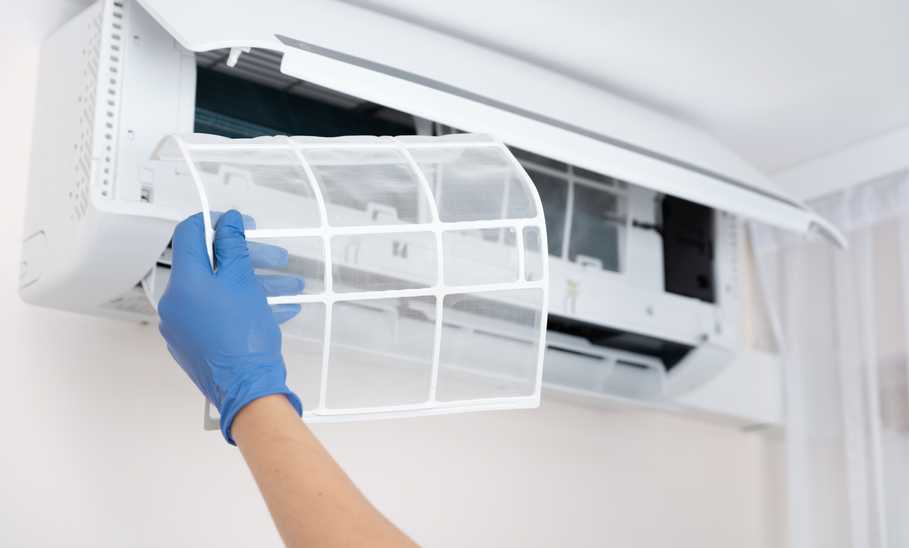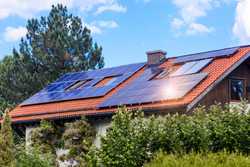How to Clean an Air Conditioner, According to Experts

Our evaluations and opinions are not influenced by our advertising relationships, but we may earn a commission from our partners’ links. This content is created by TIME Stamped, under TIME’s direction and produced in accordance with TIME’s editorial guidelines and overseen by TIME’s editorial staff. Learn more about it.
Summer’s right around the corner and it’s time to get those air conditioners in good shape. For some, that may involve calling in an HVAC technician, however, for the DIY savvy, this can be done at home with the right knowledge and tools. “Maintaining an air conditioner is essential to ensure the machine operates correctly and extends its working longevity,” says Michael Rubino, mold and air quality expert and founder of HomeCleanse. “This saves money on costly repairs and keeps the energy bills down.”
We’ve created a guide on how to clean an air conditioner at home with expert insights and product recommendations—so you can get the job done before the warm weather arrives.
Kelsey Hei, filtration and indoor air quality specialist at 3M, recommends cleaning an air-conditioning system thoroughly once a year. That said, according to the U.S. Department of Energy, the number one maintenance task for AC efficiency is to change air filters regularly. This is true for all air conditioner brands
You may notice your space isn’t getting as cold as it once did. In some cases, you may find your AC not blowing cold air, which could leave you adjusting the thermostat more often or leaving it on for longer periods of time.
If you spot visible signs of dirt or mold with your naked eye, that’s a clear sign your air conditioner is dirty according to Mike Payne, a virtual HVAC expert at Frontdoor. In some cases, you may see more dust than usual, which could be an indication it’s time for a cleaning.
Rubino says you may notice a musty, stale, earthy, or cigar-like smell coming from your air conditioner unit when it’s indeed dirty and needs to be changed.
Read, Also: Best Air Conditioners of 2024, From Mini-Splits to Central HVAC Units
According to Hei, here’s how to clean an outdoor condenser unit.
An indoor evaporator coil won’t be able to absorb the warm air over it when it’s dirty, hence, it must be kept clean.
Air vents allow the air to be released into your space, so it’s important they’re cleaned properly.
Cleaning an air conditioner filter is a pretty seamless process.
According to Rubino, when it comes to cleaning your air conditioner some common mistakes include failing to turn the unit off, using cleaning products with harsh chemicals, as this can damage the unit’s components, leaving debris inside of the unit, forgetting about the air filters, and using improper tools for the fins and damaging them.
A soft-bristled brush is an essential tool for cleaning air conditioners to help remove particles from evaporator coils. Opt for the Andoer Easy-to-Use Air Conditioner Fin Cleaning Brush that can work to sweep away dust and scrap away grime all with one tool.
A fin comb is designed to help straighten the bent fins to create a more efficient air flow. Amazon is home to a host of affordable yet functional fin combs like this pack of two you can add to your toolbox.
Coil cleaner helps to remove dirt and oxidation that rests on top of air conditioning coils. When the coils are clean, you’ll notice better circulation and efficiency coming from your air-conditioning unit. Add this Simple Green Foaming Coil Cleaner or AC-Safe Air Conditioning Coil Foam Cleaner to your shopping list to help get the process started.
The cleaner your air conditioner unit is, the better off you’ll be at the end of the day. Use a disinfectant spray like Lysol Disinfectant Spray to wipe down the exterior surfaces and kill germs and bacteria.
![[object Object] [object Object]](https://images.thdstatic.com/productImages/c6ff22bd-2aa8-45a6-b7f7-e7b6bc9bd81b/svn/midea-window-air-conditioners-maw12v1qwt-64_600.jpg)
Before cleaning an air conditioner, there are a few safety precautions you’ll want to keep in mind.
First and foremost, make sure the AC unit is turned off before cleaning. This prevents the risk of electric shock, potential equipment damage, and extra non-essential energy costs.
To keep your hands and face safe, you’ll want to be sure you have the right equipment. Rubino recommends using gloves, wearing safety glasses, and putting on a mask before getting to work.
It can be nerve-wracking to clean your own air conditioning unit, however, the right materials and knowledge can help you prevent damage to the components. For example, when you’re vacuuming the debris, make sure you don’t indent the metal fins as that can negatively impact functionality.
Air filters within the HVAC system help to trap unwanted particles in the air – including mold, dust, pollen, pet dander, bacteria and viruses — thus improving your indoor air quality. “A clogged filter can strain the furnace’s mechanical systems and may not filter the air that passes,” says Hei.
Keeping that in mind, you’ll want to be sure to change the air filters regularly with a good rule of thumb being to switch them out once a month. The Department of Energy notes that replacing a dirty or clogged filter can lower your air conditioner's energy consumption between five and 15 percent.
Whether you live in an area with a lot of leaves or pollen, you’ll want to be sure the area around your air conditioning unit is clean. Do what you can to sweep and relocate these elements to prevent unwanted blockages that can hinder the functionality of your unit.
Hei recommends scheduling an annual pre-season checkup by a licensed HVAC technician to head off problems at the pass. If any other questions pop up throughout the year, then you can always schedule an appointment to have them check out the unit and do any troubleshooting if necessary.
Yes, you can clean an air conditioner by yourself. You’ll want to be sure you have the right tools and knowledge necessary to do it properly. If you don’t feel well equipped mentally or physically, then you can always call an HVAC technician to get the job done. It may cost you a bit more, however, you’ll know the professional has done it properly.
According to Rubino, yes, it is okay to spray water on your air conditioner but not on all parts, like the electrical components, and not while the unit runs. Additionally, he recommends not using too powerful a force of water.
Yes, you can clean the inside of an air conditioner. “You can vacuum any debris that has settled into the bottom of the system,” says Payne.
Keep in mind that if mold is growing on the insulation inside the cabinet, due to the porosity of the insulation it may require replacement, Rubino adds.
Payne recommends never using bleach, but instead using vinegar when cleaning your AC unit. “Vinegar is a good substitute for bleach when cleaning out the condensate drain system,” he adds. “Always use approved cleaners (see manufacturer’s guide) when cleaning the coil.”
That said, Rubino notes special coil cleaners are necessary for cleaning an evaporative coil due to the intricacies of cleaning between the fins.
Payne says the most important parts of the system to clean are the indoor and outdoor coils to make sure you have peak heat transfer area and system efficiency. “Also, cleaning the condensate drain is key to prevent water back ups and possible leaks,” he adds.
The information presented here is created by TIME Stamped and overseen by TIME editorial staff. To learn more, see our About Us page.



